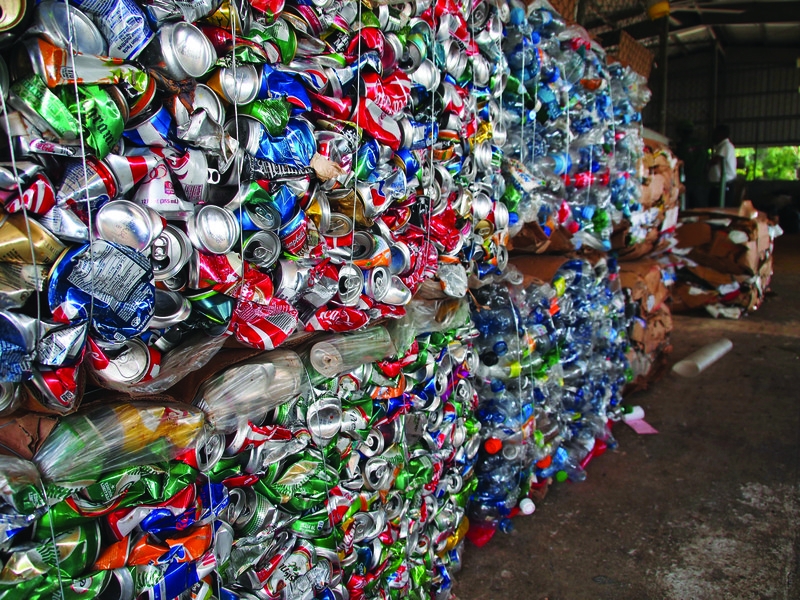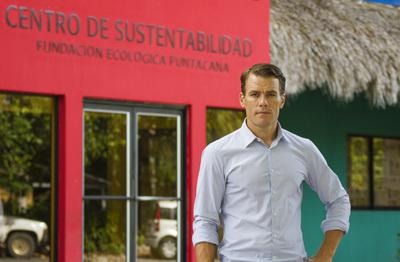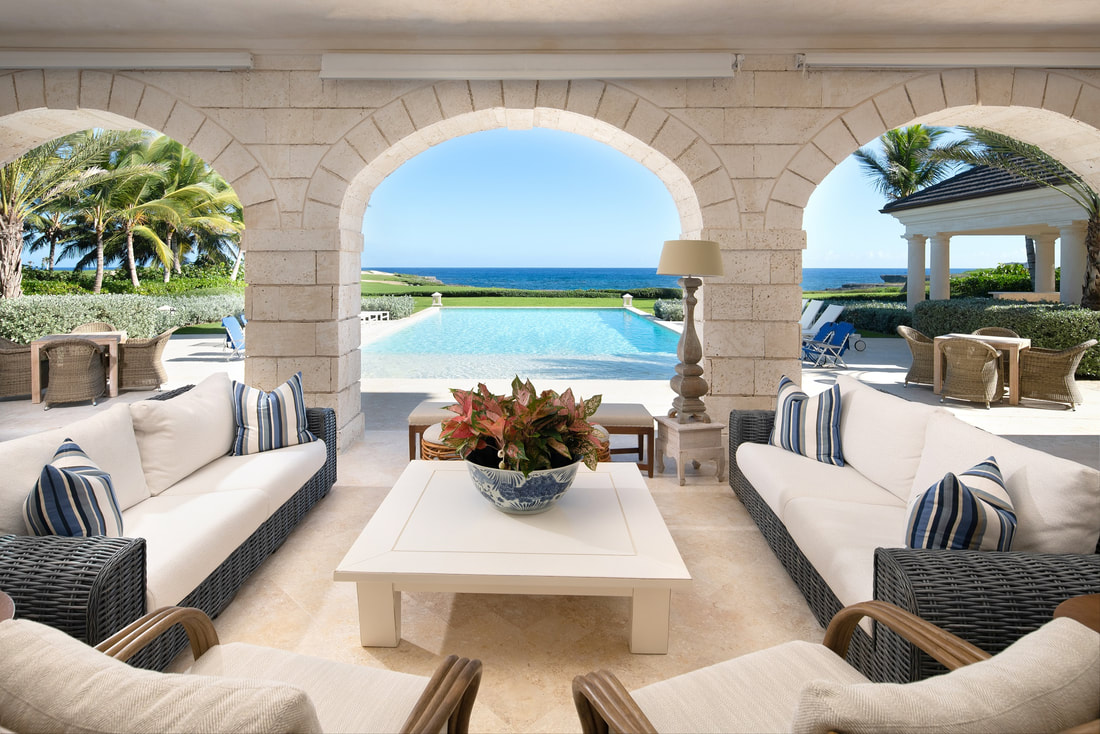|
I never imagined that my job at a leading Dominican resort would be so dirty—at least not at the beginning. I spent my first months as environmental director of Puntacana Resort & Club with my team opening and examining hundreds of bags of garbage generated by the resort and its airport. We categorized the waste material to figure out how we might minimize the purchase of unusable materials or find alternative final destinations for our waste, rather than the dump we were using when I arrived. Tourism makes garbage. At that time, in 2005, the Punta Cana region, one of the fastest growing destinations in the Caribbean, with more than 30,000 hotel rooms and close to two million arriving passengers yearly, produced between twenty and thirty tons of garbage daily. Yet tourism demands cleanliness. The tourism industry of the Punta Cana region, and to a large degree of the Dominican Republic, is entirely dependent on its beautiful beaches, crystalline blue seas, and abundant freshwater for its hotel guests and tropical landscaping. With no barriers to avoid contamination of the underground aquifers, the dump I found upon arriving, only eight miles on a straight line from the ocean, could foul freshwater supplies and potentially reach the ocean and destroy the coral reefs. Working with Victor Ojeda, a waste expert who had advised numerous cities, municipalities and tourist destinations in Latin America on the creation of integrated solid waste management programs, we spent close to six months analyzing the waste production and process flow both of the Puntacana Resort & Club and of the Punta Cana International Airport (a private airport owned and operated by Puntacana Resort & Club that receives as many as 80 flights in a single day). We had to find an alternative to the foul dump—a threat to the future and long-term sustainability of tourism. My first visit to the privately run Gerom dump had been nightmarish. Dozens of Dominican and Haitian buzos (scavengers) sorted through the piles of garbage by hand, looking for useful or valuable materials. The smell was overwhelming. Tractors pushed the mountains of trash from side to side. This “landfill” was actually a former limestone quarry that had been converted into an unlined dump, receiving unsorted garbage from close to 40 all-inclusive hotels operating in the Punta Cana region. The collection system wasn’t much better—ancient compaction trucks leaked a putrid brown liquid on the streets of the resort as they drove around collecting garbage. On top of this, the system was expensive and often erratic, and we had already been warned of a 10 percent increase in waste hauling fees. But with little government oversight to regulate waste (no local government even existed in 2006), there appeared to be no solution in sight. Yet we needed to find solutions. So we studied our garbage, identifying numerous previously unrecognized problems. For one, users didn’t want to touch the dirty trash dumpsters and left their garbage outside of the dumpsters, even if they were empty. Local buzos then opened the trash bags, allowing stray dogs and cats in search of food to spread the remaining contents near the dumpsters. The unsightly messes attracted clouds of flies and mosquitoes. Significantly, the dumpster system also meant that anyone with garbage could utilize our dumpsters and we would pay for it. With waste having no discernible cost, the community had no incentive to sort it and recycle. After studying our waste production, Ojeda and our team prepared a detailed proposal for completely transforming our existing system into a model one. Our plan called for a new system based on the growing international trend of “Zero Waste” communities that seek to minimize the amount of garbage they send to the landfill. We proposed building a recycling and incineration center for the resort, where we would receive and sort all of the waste from the airport terminal, all arriving airplanes, and all the resort installations, including three hotel properties, more than 1,000 homes, a medium-sized shopping mall, half a dozen office buildings, an electric plant, an industrial laundry, three golf courses, more than 14 restaurants and a marina. International waste from arriving planes that couldn’t be recycled would be incinerated as required by international regulations. We proposed eliminating all dumpsters around the resort and implementing a door-to-door collection service that we would manage ourselves, rather than relying on an external service. We would create a worm-composting system to handle organic wastes and convert them into organic fertilizers for growing vegetables and for compost to use on our golf courses. Additional organic waste would be given to local pig farmers until we could find a better solution. In addition to the recycling plant and worm-composting, we proposed implementation of a resort-wide training and education program, encouraging classification of waste at the source to avoid contamination of the recyclable materials we could sell, and facilitating the use of organic materials in composting. We would radically change how we managed our waste, sending a fraction of the material to the dump, reducing our dependence on external companies and their volatile pricing, all while eventually reducing our costs. We even insisted that we should no longer refer to these materials as “garbage” but rather as “materials” and “solid waste,” to encourage a different mindset of considering these materials as potentially useful. After we showed how our program, while expansive and expensive, would pay for itself in time, our CEO, Frank Rainieri, declared, “Yes, yes, the financial part is important. We need to make it economically sustainable. But we need to do this for another, more important reason: to be competitive.” He observed that passengers, guests, homeowners and potential homeowners come primarily from developed countries, and they expect their waste to be handled correctly. “If we want to remain competitive, we need to manage our waste as well or better than the countries where our visitors come from,” he added. Thus, we set about implementing Zero Waste at Puntacana Resort & Club. After seven years, it has become one of the largest recycling programs by any company in the Dominican Republic. We are able to recycle 47 percent of all the waste we produce, reducing significantly the amount of waste we send to the landfill (no longer operated by Gerom) and reducing our operating costs. With the volume of recyclables we generate, we helped create a market for them in Punta Cana, which has encouraged dozens of hotels to begin recycling. It has also led to the creation of several companies dedicated to recycling and integrated waste management. More importantly, the program, which we share regularly at conferences, during site visits, videos, and through as many media channels as possible, has inspired the formation of a nationwide network dedicated to “Reduce, Reuse, and Recycle,” leading to improved waste management by dozens of companies in the Dominican Republic committed to improving their waste management. While the program has had a profound impact on our community and company and proved to be economically viable, we now realize Zero Waste is not just a project but an ongoing and almost continuous process of improvement of practices. Our Zero Waste enterprise has not yet completely eliminated all waste at the resort as the lofty name suggests, and we are still searching for a viable, long-term solution for organic waste, to complement our growing but still experimental worm-composting program. We still continually conduct training and education programs throughout the resort. And I still occasionally get my hands dirty. Jake Kheel is environmental director for Puntacana Resort & Club and executive director of the PUNTACANA Ecological Foundation in the Dominican Republic. He has extensive experience directing interdisciplinary projects and his work has earned numerous international awards. He has a Master’s degree from Cornell University and BA from Wesleyan University.
Original article: http://revista.drclas.harvard.edu/galleries/zero-waste-punta-cana-garbage-and-tourism-dominican-republic
1 Comment
Karen
8/2/2016 07:00:47 am
I just returned from my first visit to the DR, a missions trip in a smaller town 50 km east of the Santo Domingo airport. I can not express how happy it makes me to read this blog and know that someone somewhere is working to sustainably clean up there corner of the country. Amen!
Reply
Leave a Reply. |
Puntacana BlogsOur new way of communication! Categories
All
ARCHIVES
March 2021
|






